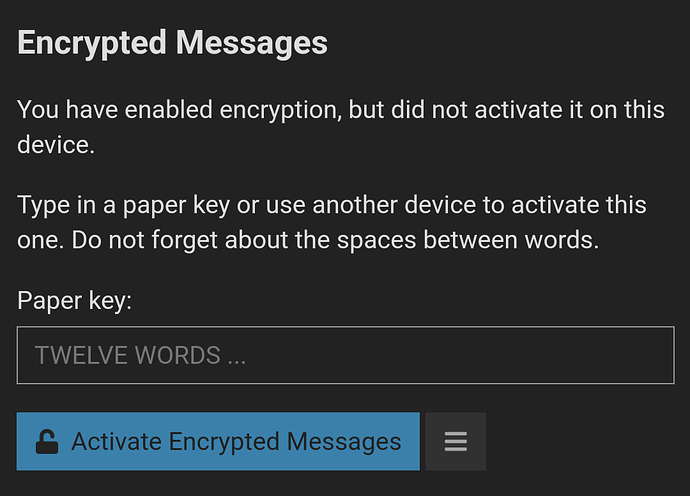That’s my point. I can’t say that without investing far more time and effort than I care to do. Doing encryption right is very very difficult, and very easy to fuck up. I haven’t seen any in depth third party analysis of the Discourse system by people smarter than I.
From what I see, there is a non-trivial amount of information pointing to this possibly being a non-broken system. And a non-zero number of open questions regarding the integrity of the system, and implementation or other issues.
There are many other options that we can say with much higher confidence levels are reasonably secure. Many of them are reasonably simple to use.
When I put anything involving random internet forum that involves discussion of topics that are illegal in many global jurisdictions into my threat model, don’t trust it, don’t pretend to trust it, act as if it’s already compromised drops out the bottom.
Use Signal if you want a user-friendly and probably-secure communication channel for sensitive discussions. It’s a lot simpler than any of the various PGP type implementations out there.
My personal bet based on the security community’s analysis is that Signal is likely presently secure to at least a first approximation, though I believe that that is not always going to be true. I think SimpleX is a better long-term bet from security perspective, but it’s new and not as polished as Signal yet, and not something I’d suggest to anyone who isn’t tech savvy.
LOTS of people have spent a lot of time validating the Signal protocols and implementation, and many more have spent even more time trying to break it. If it gets broken, there’s a non-zero chance that that fact will become publicly known and/or fixed relatively quickly.
Is the same attention being lavished on the Discourse plugin? I doubt it.
You choose to trust it. You understand what a threat model is, so I very much doubt you’re using it for “end up in a concrete and steel box” conversations. I don’t have any real reason or need to want to trust it.
No fear. Yes uncertainty and doubt.
IF the DM encryption is not compromised or broken, sure.
You’re not going to hear any argument from me on this one. I think everything always should be end to end encrypted and secure from anyone who isn’t an intended recipient.
The Discourse encryption might be just fine. Could be reasonably secure.
I’m pointing out what I feel are reasonable concerns about the uncertainty of the security of this system so that those who may not have a copy of Applied Cryptography on their shelves might become aware that it’s not as simple as “they have Encryption - that makes everything safe and I can freely talk about illegal drug deals using the messaging platform of this internet forum and it’ll be fine.”
I personally feel that the risk of putting any level of trust into this specific unproven system is high enough that it’s not worth it, when there are options out there that have a lot more points in the “reasons to believe this is secure” column.
If members of this site are having the kinds of discussions that an individual in a uniform is going to ask pointed questions about, trusting encryption here seems like a bad idea all-around.
If they’re not, why bother with it? So the admins probably can’t read your messages? Sure, that’s not useless I guess. But I prefer to move to different channels for anything I don’t want someone else reading.
![]() , lol)
, lol)